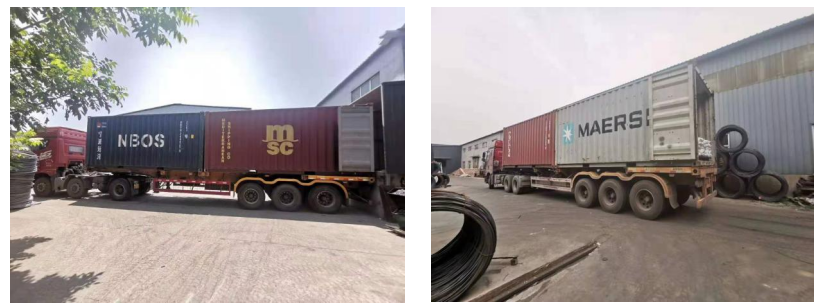french door bolts factories
Oct . 19, 2024 06:41 Back to list
french door bolts factories
The Significance of French Door Bolts A Comprehensive Overview of Factories and Manufacturing Processes
French doors are renowned for their elegance, letting in natural light while providing easy access to outdoor spaces. However, behind their aesthetic appeal lies a crucial element of security and functionality door bolts. Particularly, French door bolts are essential components that ensure the stability and safety of these beautiful architectural features. This article delves into the importance of French door bolts, the manufacturing processes of factories that produce them, and the diverse varieties available in the market.
The Importance of French Door Bolts
French door bolts serve a dual purpose. First, they enhance security, acting as a deterrent against unauthorized entry. By securing both doors in a French door setup, they prevent intruders from easily accessing homes. Second, they improve the structural integrity of the doors themselves. French doors, made primarily of glass, can be vulnerable to strong winds and vibrations. Bolts provide additional support, ensuring that the doors remain steady and function smoothly without warping or misalignment.
Materials Used in Manufacturing
The quality of French door bolts largely depends on the materials used in their manufacture. Factories typically utilize a variety of substances, including stainless steel, brass, and aluminum. Stainless steel is preferred for its corrosion resistance and strength, making it ideal for external applications where exposure to weather conditions is a concern. Brass, while aesthetically pleasing, offers moderate strength and is often chosen for its classic appeal. Aluminum is lightweight and resistant to rust, making it a practical option for some designs.
Manufacturing Processes
The manufacturing of French door bolts involves several steps, each designed to ensure the final product's durability and effectiveness. The process begins with the selection of raw materials, where quality control checks are essential to assess the integrity of the metals.
1. Machining The raw materials are then cut and shaped using advanced machinery. This phase may involve CNC (Computer Numerical Control) machines, which provide precision in cutting and shaping the components.
2. Casting and Forging For certain designs, especially those requiring intricate details, casting and forging methods are employed. Casting allows for the creation of more complex shapes that would be difficult to achieve through standard machining.
3. Finishing Once shaped, the bolts undergo finishing processes, including polishing, plating, and painting. These processes enhance both the appearance and durability of the bolts, ensuring they resist wear over time.
french door bolts factories

4. Quality Control After manufacturing, the bolts go through rigorous quality control checks. These checks may include stress tests and inspections for surface defects to ensure that the finished products meet safety standards.
5. Packaging and Distribution Finally, the finished products are packaged carefully to prevent damage during transport. Factories often supply to various retailers, distributors, and construction companies, expanding their reach in the market.
Varieties of French Door Bolts
The market offers a variety of French door bolts, catering to different aesthetic preferences and security needs. Common types include
- Surface-Mounted Bolts These are fixed to the surface of the door and offer straightforward installation. They are ideal for DIY enthusiasts.
- Flush Bolts These bolts are installed inside the door, providing a more concealed and aesthetically pleasing option. They are commonly used in high-end installations.
- Deadbolts For added security, some homeowners opt for deadbolts, which require a key for locking. These can be integrated into French doors for increased safety.
- Slide Bolts These are easy to operate and provide robust locking mechanisms. They can be fitted both horizontally and vertically, accommodating various door designs.
Conclusion
French door bolts are an unsung hero in the world of home security and functionality. Their importance cannot be overstated, as they provide peace of mind while maintaining the beauty of French doors. The factories that manufacture these bolts play a crucial role in providing high-quality, reliable products that homeowners can trust. By understanding the materials, manufacturing processes, and varieties available, consumers can make informed choices when selecting the right bolts for their French doors, ensuring that their homes remain secure and stylish for years to come.
Latest news
-
High-Quality Panel Stud Bolt Reliable Panel Stud Bolt Factory & Suppliers
NewsJul.08,2025
-
High-Precision Fine Thread Locknuts Manufacturer & Supplier Custom Solutions
NewsJul.08,2025
-
PH Imperial Stud Bolt – High Strength Fasteners from Leading Supplier & Factory
NewsJul.07,2025
-
High-Quality Allen Wrench Bolts Leading Factory, Company & Suppliers
NewsJul.07,2025
-
Wholesale Ball Stud Bolt - High Quality Supplier & Factory Price Reliable Wholesale Ball Stud Bolt Company
NewsJul.06,2025
-
High-Strength Alloy Bolts Manufacturer & Supplier Quality Alloy Fasteners Factory
NewsJul.06,2025
